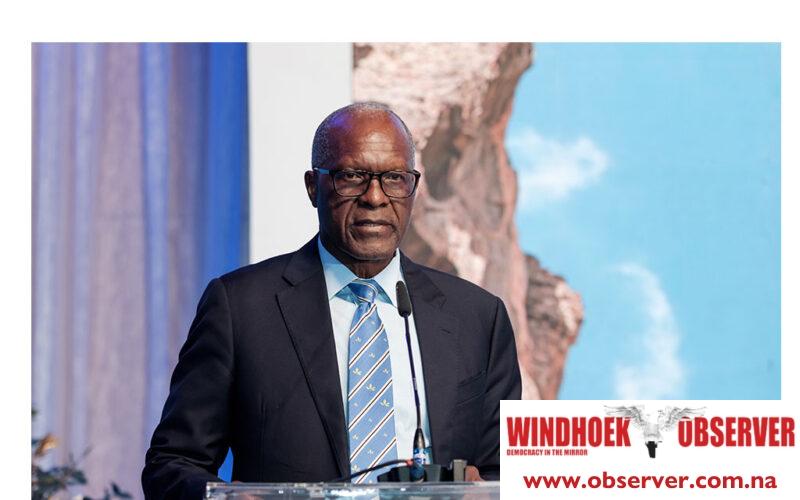Justicia Shipena
Former mines and energy minister Tom Alweendo has warned that Africa’s green hydrogen industry will face pressure points in the next three to five years, particularly in safety, electrolyser commissioning and maintenance, clean-fuel handling at ports, high-voltage grid integration, and certification for export standards.
Speaking at the Global African Hydrogen Summit in Windhoek this week, Alweendo said skills must be treated as core infrastructure.
“Skills are infrastructure. Without capable teams, megawatts and clean fuels do not move,” he said.
He explained that Africa may have world-class resources, but the real challenge is building and keeping the people who can turn studies into operating assets.
“The task now is to build and keep the people who turn studies into operating assets, so projects finish on time, run safely and serve both exports and local industry,” he said.
Alweendo outlined the need for three layers of expertise, such as trades, technologists, and professional and leadership roles across engineering, grid and port planning, desalination, logistics, finance, and law.
He emphasised that safety culture, data management, quality assurance, and cost discipline must underpin all these levels.
He proposed five actions to close the skills gap.
“Train to the job; turn major projects into paid classrooms with apprenticeships; build specialised hubs where the jobs are; retain the people we train with clear pay bands, safe workplaces and mentoring; and make technology transfer real, local maintenance, joint labs and early manufacturing.”
Alweendo called for a Windhoek skills and technology compact to anchor delivery.
He said this should include a levy share ring-fenced for green skills, mandatory training duties in licences and contracts, three anchor hubs in coastal, grid and industrial zones, a green skills passport, and at least 40% of training seats reserved for women.
Localisation plans and joint labs, he added, should be required from the start of projects.
“If we budget for people with the same rigour as steel and concrete, we derisk investment and keep more value on the continent. The choice is ours,” he said.
At the same event, deputy prime minister and minister of industries, mines and energy Natangue Ithete echoed the need for action, telling delegates that green industrialisation must deliver dignity, jobs, and empowerment for ordinary Namibians.
“We have spoken enough, we have written enough; now let us transform our speeches into real results that our people can see and feel,” he said.
“We will fail in our efforts if we cannot tell our parents at the community level how many jobs are created, how many young Namibians are being trained with new skills, how women are being empowered, and how energy scarcity is being eradicated and not reproduced.”
Ithete said green hydrogen projects’ success must be judged by impact on communities.
Namibia currently has several projects in the green energy space, including Hyphen Green Hydrogen, Daures Green Hydrogen, Oshivela HyIron, and Cleanergy Solutions.
He urged leaders, investors, and innovators to commit to measurable outcomes.
“Each project must be able to point to schools built, skills transferred, families lifted out of poverty, and communities strengthened. This is the test of leadership, and this is how we will write a new story for Africa, one of resilience, progress, and shared prosperity,” he said.
He added that Namibia is determined to use its hydrogen locally to drive industrialisation and energy security before exporting.
“Our policies are clear through NDP6 and our commitment to ESG principles. Yet the true measure of success will not be in how attractive our policies look to investors, but in how deeply they transform the lives of our citizens,” he said.
The Global African Hydrogen Summit 2025 took place this week in Windhoek under the theme “Ambition in Action: Fuelling Africa’s Green Industrial Revolution.”
It brought together leaders, investors, and industry experts to build partnerships and strengthen investment in African hydrogen projects.




